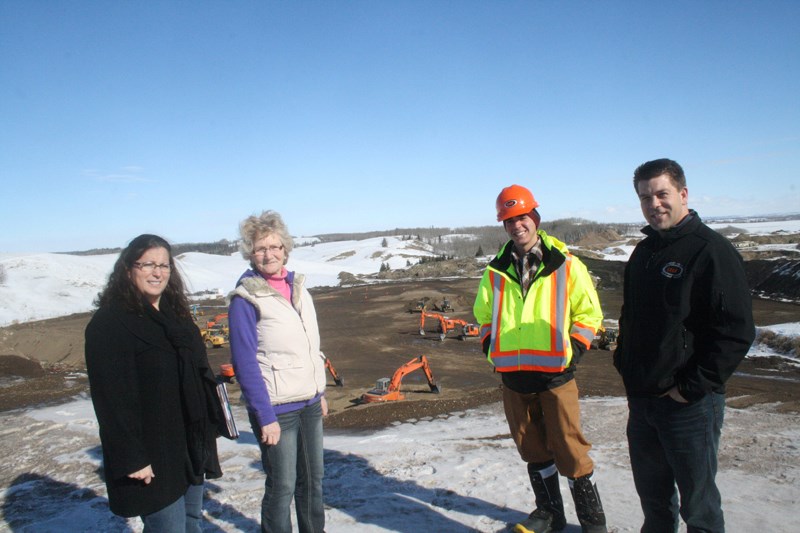He's moving from the source to the surface.
Lindsay Spence, 53, has been in the oil industry for decades doing drilling and completions work but wanted a chance to become involved in construction above ground. So when the Innisfail resident, who is part Cree and part Salish, saw an ad promoting Métis training he jumped at the chance, enrolling in a heavy equipment skills program with support from an Alberta Métis funding organization.
“It's a natural progression, really,” he said, during his first week of hands-on training at the Interior Heavy Equipment Operators School campus north of town. “This could be a lifelong career.”
After his education ends April 5, Spence will be the first graduate of a batch of up to 12 students funded by the Rupertsland Institute, a non-profit organization that works to advance education, skill levels and employment opportunities for Métis people with dollars from the federal government.
Spence sees the course opening the doors to a wide variety of employment options in fields as diverse as pipeline construction and maintenance, county work, forestry, and urban revitalization. The significance of Métis people participating in the growth of the province is not lost on him.
“The next 30 years in Alberta are going to be very busy with construction, and a lot of this stuff comes right on native and Métis land,” he said. “Rather than just have the companies come by and do whatever they need to do to source this oil and this energy, this gives the Métis an opportunity to participate if they have the proper training and education – as this school gives.”
Courses generally run two-and-a-half months and cost about $19,500, though school officials say the training has been specially tailored for the Rupertsland-funded students into a nine-week intensive program to fit the needs of out-of-town trainees.
“Everyone has the common goal of employment,” said Gerrie Barros, project manager for the Rupertsland Institute. “I think the positive thing here at this school is they get into the equipment immediately. They actually have hands-on learning.”
Students receive training in safety, basic machine operation and different soil types during classroom and in-pit sessions.
Mike Hansen, general manager of Interior Heavy Equipment Operators, said building a relationship with organizations like the Rupertsland Institute happens one student at a time.
“We teach what companies can't,” he said. “With every relationship it all starts with one person. If they're successful they'll tell others.”
Lorna Lang, an associate director with the Rupertsland Institute is hopeful the new partnership will create lasting employment opportunities for Métis people and likes how quickly the school allows students to start a rewarding career.
“Heavy equipment operators are in high demand in the province,” she said, acknowledging the draw of the lucrative oil and gas sector. “But it's more than that. It's looking at the interests of the students.”
One of those Métis students is Trenton Plaizier, 17, who recently arrived on site from his home of St. Albert.
“I always wanted to be a heavy equipment operator,” he said, explaining he grew up driving a tractor on the farm. “I want to make it my full-time career.”
He wants to head out to the oilfield and make big money on the rigs, and says he's thankful for the support from the Rupertsland Institute.
“It's a great opportunity to get my tickets,” he said. “I feel pretty privileged to be part of it.”



